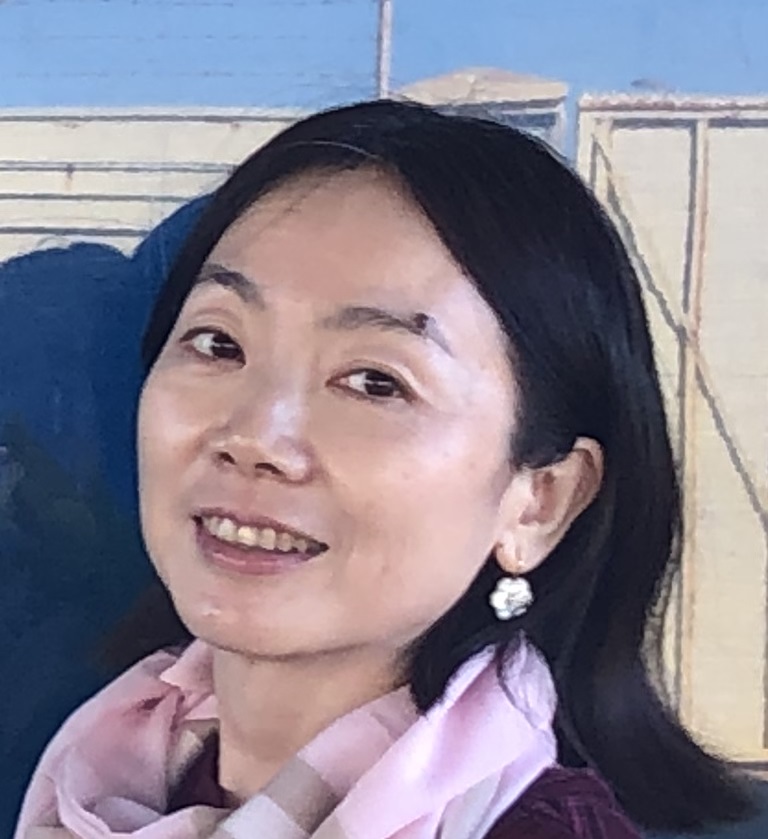Dr. Jing-Dong Jackie Han
Jing-Dong Jackie Han, Ph.D. stands at the forefront of computational biology research, distinguished as both a leading researcher and influential leader in the field. She is a Professor and Investigator at both the Center for Quantitative Biology and the Peking-Tsinghua Center for Life Sciences at Peking University.
Jackie is the head of her own laboratory, the renowned Han Lab at Peking University. In recognition of her impact, Jackie has been honored with several prestigious awards over the years. She received the NSFC Outstanding Young Scientist Award in 2006, the Hundred Talent Plan Outstanding Achievement Award in 2009, was chosen as a Max Planck Fellow in 2011, and was recognized as a MaxNetAging Fellow in 2014.
Jackie's impressive research achievements include pioneering aging clock models and AI‐driven diagnostics — exemplified by her study Thermal Facial Image Analyses Reveal Quantitative Hallmarks of Aging and Metabolic Diseases, which integrated 3D facial and thermal imaging with AI to enable early, non-invasive detection of metabolic disorders. Additionally, Jackie’s work mapping molecular interaction networks has significantly advanced systems-level analyses in computational biology.
Her landmark study A Map of the Interactome Network of the Metazoan C. elegans was a key element of the early comprehensive efforts to map protein–protein interactions in a multicellular organism. Her research on dynamic modularity in yeast advanced our understanding of how coordinated cellular organization underpins diverse biological functions, highlighting the dynamic flexibility inherent in biological networks.
The Han Lab, under Jackie's leadership, not only mentors future scientists and researchers but also produces cutting-edge research. Their 2024 publication in Aging Cell, Prediagnosis Recognition of Acute Ischemic Stroke by Artificial Intelligence from Facial Images, demonstrates this innovation. The research team developed an advanced neural network that combines Xception, ResNet50, VGG19, and EfficientNetb1 architectures to assess stroke risk through 2D facial image analysis. This technology could revolutionize emergency medicine by enabling rapid stroke evaluation in time-sensitive scenarios.
Beyond the critical work at her lab, Jackie’s contributions consistently appear in high-profile scientific journals, including Cell Metabolism, Nature Communications, Genome Research, and The Lancet Regional Health-Western Pacific. Her presence in these prestigious journals highlights both the rigor and regard her research holds among her peers.
The excellence reflected in her publications has roots in her impressive academic training, which began after earning her Ph.D. in Biomedical Sciences in 1996 from the Albert Einstein College of Medicine. Since then, Jackie has embarked on a multifaceted career that spans both industry and academia. She began her postdoctoral research at The Rockefeller University and the Howard Hughes Medical Institute (1997–1998), then honed her technical skills as a software engineer at NorthStar Technologies (1999–2000), Rare Medium (2000–2001), and CQOS (2001–2002).
From these initial roles, one can see that Jackie developed a strong technical background early in her career. This background would later become evident in her approach to research, wherein she has enthusiastically adopted tools like AI in her modeling.
Transitioning fully into biomedical research, Jackie served as a Research Fellow in Bioinformatics at the Dana-Farber Cancer Institute and Harvard Medical School's Department of Genetics from 2002 to 2005. She then advanced to a faculty role at the Institute of Genetics and Developmental Biology of the Chinese Academy of Sciences, where she was an Investigator and Professor until 2010.
Since 2010, Jackie has further grown as a leader through her roles as Director, Investigator, and Professor at the CAS-MPG Partner Institute for Computational Biology (until 2018). In 2019, she joined the Center for Quantitative Biology and the Peking-Tsinghua Center for Life Sciences at the Academy for Advanced Interdisciplinary Studies, Peking University, China.
Jackie's remarkable career trajectory highlights the profound impact of a scientist who has seamlessly bridged computational expertise with biological inquiry. Her unique interdisciplinary approach — melding rigorous technical knowledge with keen biological insight — has established her as a major figure in computational biology.
Through her leadership at prestigious institutions, her dedicated mentorship of emerging researchers, and her innovative publications, Jackie is fundamentally reshaping our understanding of complex biological systems. Her novel work in aging research, protein interaction networks, and AI-driven diagnostics continues to open new frontiers in biomedicine with immense potential for clinical applications. As the field of computational biology evolves to tackle ever more complex challenges in human health and disease, Jackie's visionary contributions will undoubtedly continue to influence and enrich the discipline for years to come.
Watch Heterogeneity of Human Aging and Jing-Dong Jackie Han at ARDD2024: Measuring Aging with AI.
Read 3D Facial Imaging: A Novel Approach for Metabolic Abnormalities Risk Profiling and Exploring the Relationship Among Alzheimer’s Disease, Aging and Cognitive Scores Through Neuroimaging-Based Approach.
Stay up to date with her work by following her ResearchGate page and keeping an eye on the news page at The Han Lab.
